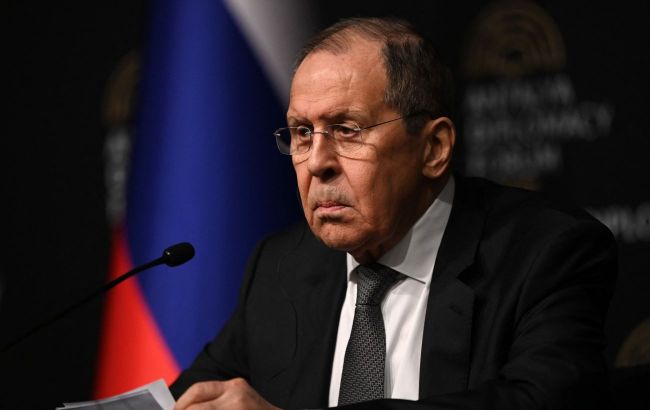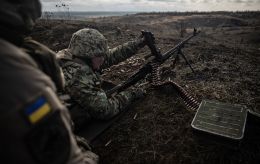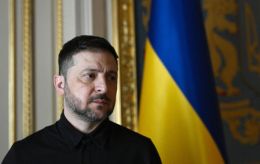Lavrov clashes with NBC journalist over Russian strike on US-owned plant in Ukraine
 Photo: Russian Foreign Minister Sergey Lavrov (Getty Images)
Photo: Russian Foreign Minister Sergey Lavrov (Getty Images)
Russian Foreign Minister Sergey Lavrov, in an interview with NBC News, publicly lied about Russia's strike on a plant owned by the American company Flex in Mukachevo. He claimed he "had never heard about it" and insisted that Russia "does not target civilian facilities."
"Russia never, ever deliberately targeted any sites which are not linked to the military abilities of Ukraine," the minister said cynically in response to a question from an American journalist.
When the journalist told Lavrov the site was not a military facility and said she had spoken with plant workers, he did not back down. Instead, he continued to deny responsibility.
Lavrov claimed that "some people are really naïve” and indirectly accused the journalist of lying. He repeated that Russian intelligence supposedly "has very good information," and insisted that Russia only strikes "military enterprises, or industrial enterprises." In effect, Lavrov admitted that the strike on the plant was deliberate.
Shifting blame to Ukraine
Lavrov also tried to accuse Ukraine of actions carried out daily by the Kremlin — striking civilian targets and taking civilians hostage. He mentioned the failed provocation by Russia's Federal Security Service, which attempted to blame Ukraine for plotting to blow up the Crimean Bridge.
He also brought up the alleged "Ukrainian attack" of the Zaporizhzhia and Smolensk nuclear power plants. According to Lavrov, it is Ukraine that seeks to carry out "terrorist attacks," while dismissing Russia's own dangerous provocations around nuclear facilities.
American capital offers no shield
Lavrov signaled that comments by US President Donald Trump, that Russia would not dare strike assets backed by American capital, mean nothing to the Kremlin.
Lavrov bluntly stated that the presence of "American, Hungarian, or any other capital in an enterprise" will not deter Russia. If Moscow decides to strike a facility, it will. He admitted that such attacks would later be justified by claims that "weapons that kill us" were being produced there.
However, when the journalist pressed him directly, asking if he could confirm that Russia deliberately targeted a facility owned by Americans, Lavrov began to backtrack.
He accused the interviewer of "distorting" his words and insisted he had confirmed nothing. Lavrov claimed he had "never heard about the episode" and said his remarks about plants were part of a "rhetorical question."
"I haven't heard about the episode, and if you can send me some reference to this incident to which you referred, I would look at it," he said cynically.
Strike on Mukachevo
During a nighttime attack on Ukraine on August 21, two Russian missiles hit Mukachevo, a city 35 kilometers from the Hungarian border. Two powerful explosions rocked the city. Russia destroyed the Flex electronics plant, the largest employer and taxpayer in Mukachevo, which employs nearly 3,000 people.
Ukraine's Prime Minister Yulia Svyrydenko later reacted to the strike, saying Russia had decided to "liberate" Ukraine from coffee machines.
The attack wounded 23 people, including 11 who remain hospitalized in the region.
After the strike, US President Donald Trump said he "wasn't happy" that a Russian missile had hit an American-owned company in Zakarpattia. Earlier this year, during debates over a mining deal with Ukraine, Trump had argued that the country did not need security guarantees because "American capital" would provide the best protection.

